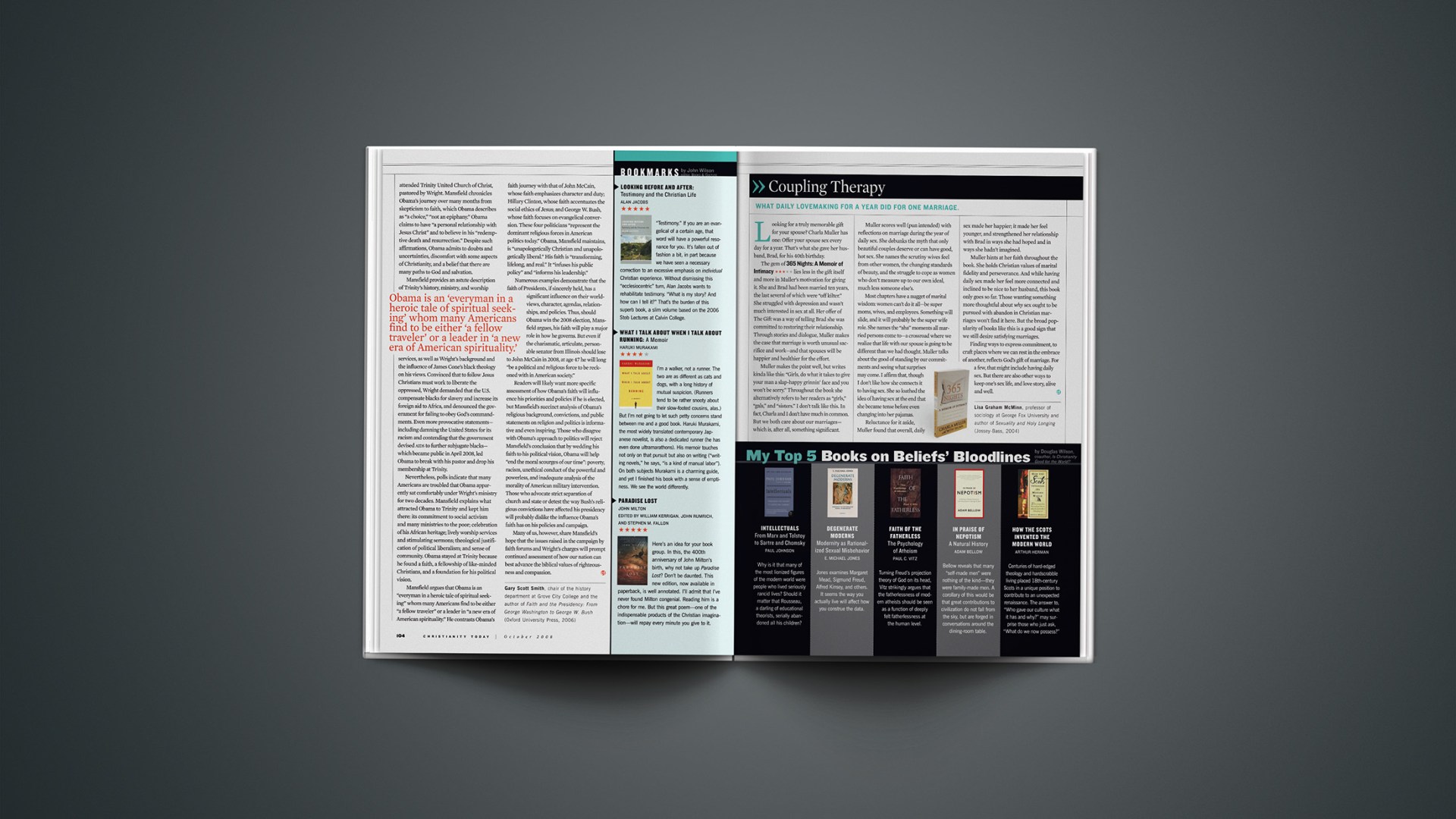An astute political analyst once mentioned that Aristotle taught us that the ad hominem was a logical fallacy. He went on to add, “I wonder what he had to hide.” Ideologies and systems should not be seen as pristine, stand-alone affairs. The best book to get us thinking about beliefs’ bloodlines:
Intellectuals: From Marx and Tolstoy to Sartre and Chomsky Paul Johnson
Why is it that many of the most lionized figures of the modern world were people who lived seriously rancid lives? Should it matter that Rousseau, a darling of educational theorists, serially abandoned all his children?
* * *
Degenerate Moderns: Modernity as Rationalized Sexual Misbehavior E. Michael Jones
Jones examines Margaret Mead, Sigmund Freud, Alfred Kinsey, and others. It seems the way you actually live will affect how you construe the data.
* * *
Faith of the Fatherless: The Psychology of Atheism Paul C. Vitz
Turning Freud’s projection theory of God on its head, Vitz strikingly argues that the fatherlessness of modern atheists should be seen as a function of deeply felt fatherlessness at the human level.
* * *
In Praise of Nepotism: A Natural History Adam Bellow
Bellow reveals that many “self-made men” were nothing of the kind—they were family-made men. A corollary of this would be that great contributions to civilization do not fall from the sky, but are forged in conversations around the dining-room table.
* * *
How the Scots Invented the Modern World Arthur Herman
Centuries of hard-edged theology and hardscrabble living placed 18th-century Scots in a unique position to contribute to an unexpected renaissance. The answer to, “Who gave our culture what it has and why?” may surprise those who just ask, “What do we now possess?”
Copyright © 2008 Christianity Today. Click for reprint information.
Related Elsewhere:
Is Christianity Good for the World? is available from ChristianBook.com and other retailers.
Previous Top 5 lists have featured books on food, Atheism, China, Presidents, World Christianity, Ancient-Future Faith, the Civil Rights Era, Social Justice, Church History, Popular Culture, the Civil War, Apologetics, Atheism, and Sex.










